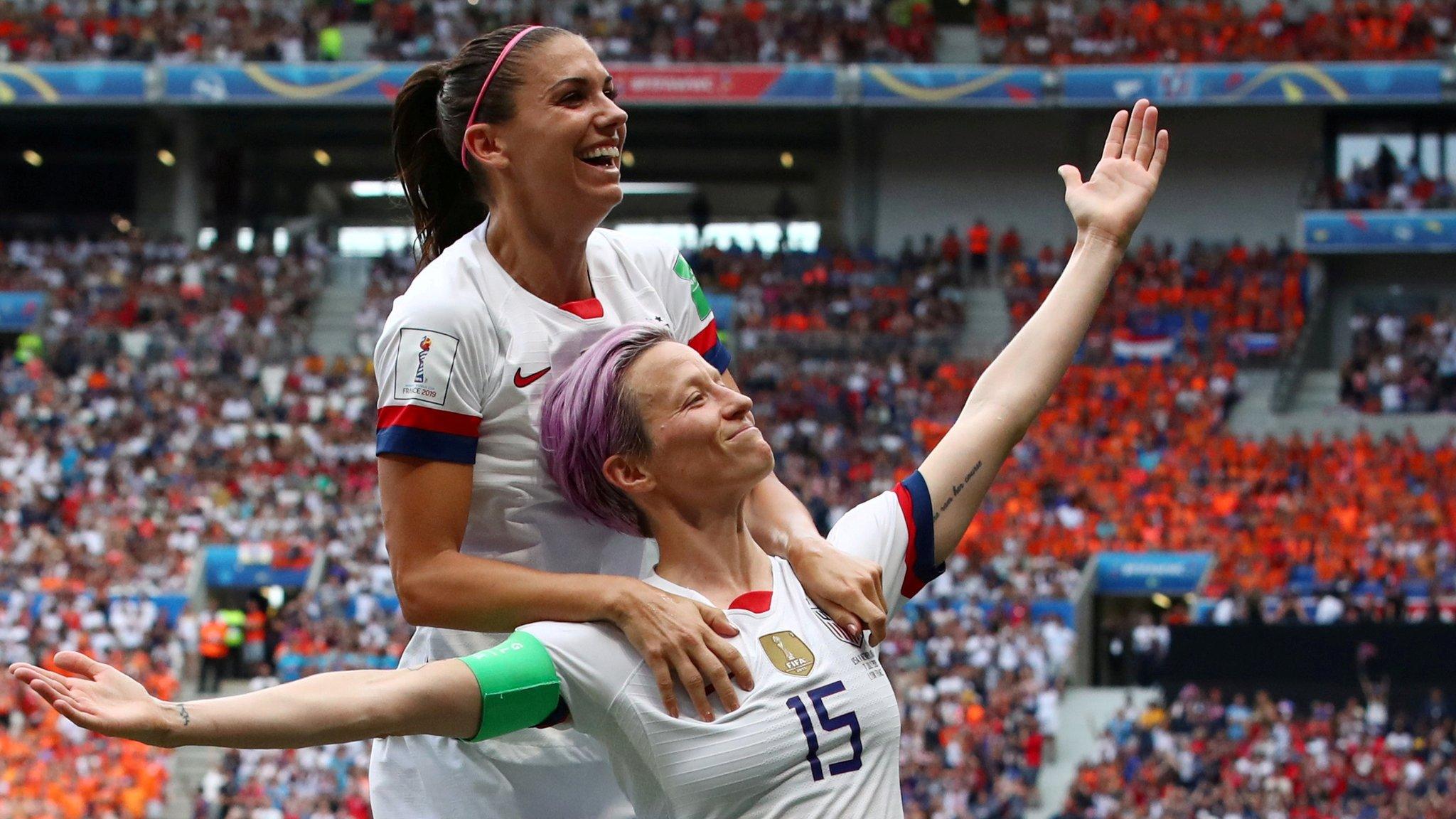Women's World Cup: Why fans' hurt is a victory for Fifa
- Published
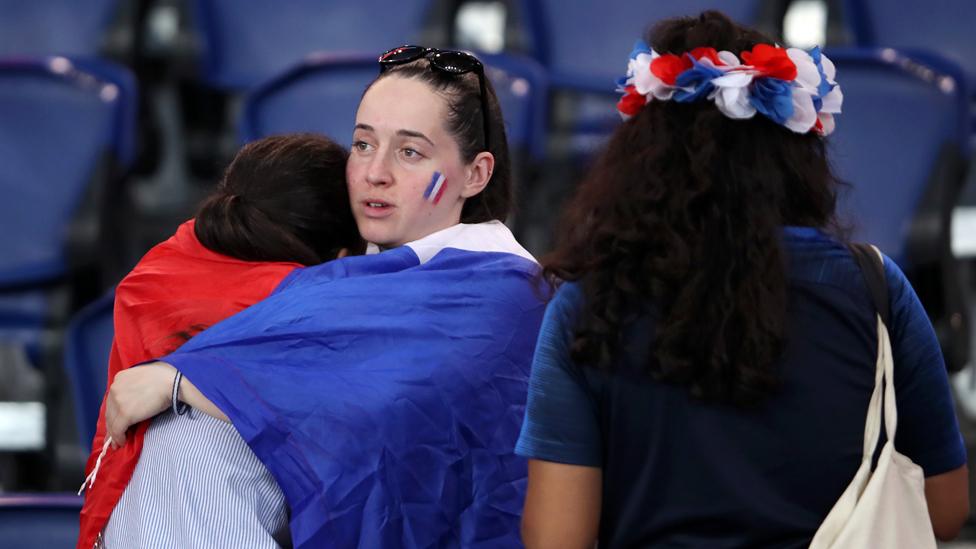
France lost to the USA in the quarter-finals
Yanis wasn't happy. In fact, Yanis was furious.
As his taxi meter clunked round faster than I expected, or would have hoped for, we snaked our way through the streets of Paris on a muggy evening in July.
The reason for the young cabbie's rage was clear from the moment I threw myself into the back seat of his car in the surrounding streets of the Parc de Princes.
It had nothing to do with the roads that had been cordoned off around Port Sainte Cloud that evening - security was tight, visible and heavily armed.
This was a passionate fury that can only really be conjured up through football, or the perceived injustices that the game sometimes throws the way of those who love it.
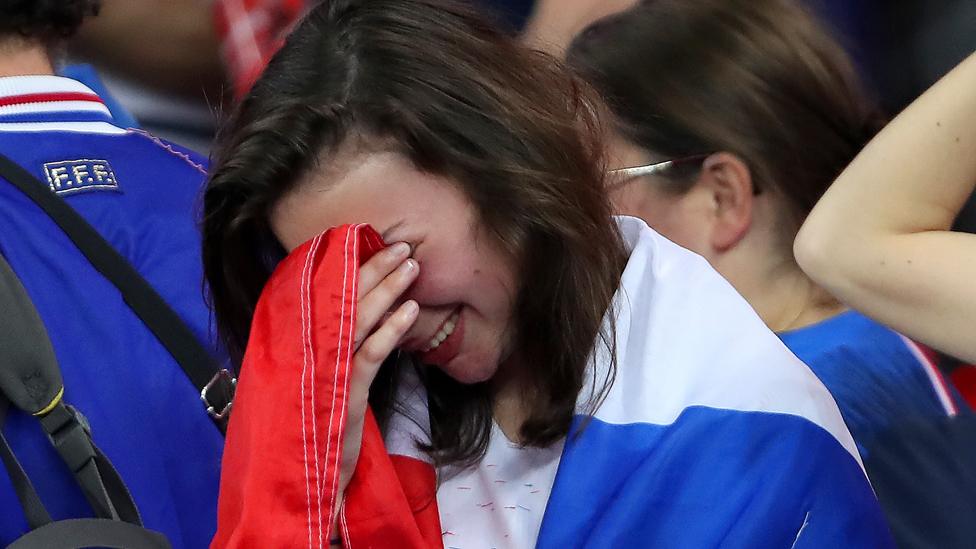
World Cup favourites USA had just beaten France in a pulsating game, in front of a capacity crowd at the home of super-rich Paris Saint Germain. Like a number of match-ups in the seven-week tournament, this was another that had thrown up some controversy.
"It was a penalty! I can't see how there can even be any debate about it."
The latest section of Yanis' angry monologue was being delivered in perfect English as we swept past the twinkling lights of the Eiffel Tower on our way to my hotel near St Germain.
'They all screamed penalty'
He had already told me that he had switched the meter off for a few hours to watch the game with friends in a bar not far from the stadium.
Late in the game, and trailing 2-1 to the favourites, they all screamed penalty when the French left back played the ball against the arm of USA's Kelly O'Hara, inside the box.
An almost identical incident had resulted in a penalty for the Netherlands a few days earlier.
This time it wasn't given, the hosts crashed out and Yanis the taxi driver's night was ruined.
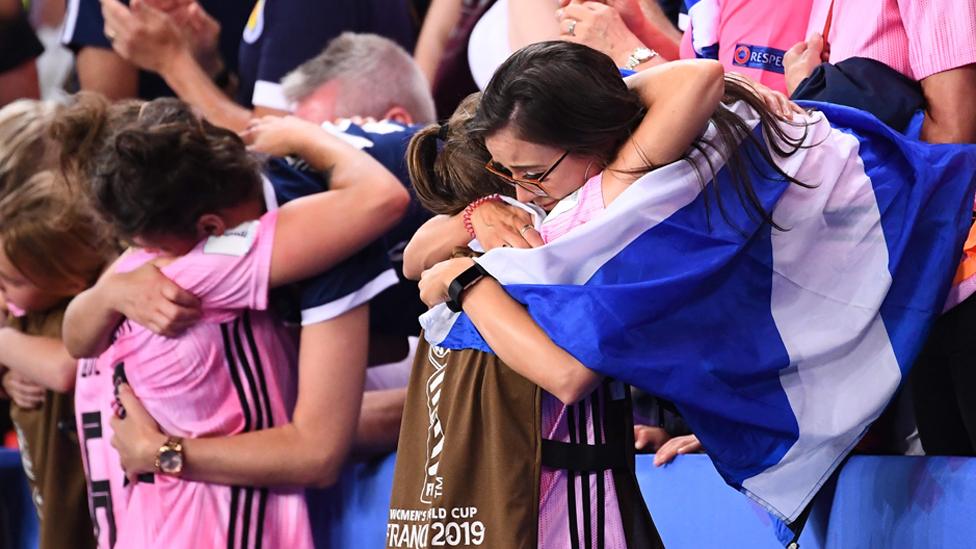
Scotland's players and fans felt the pain of their exit from the competition
As I got out and offered my sympathies, I reminded him that Scotland's campaign hadn't exactly ended in glory either, and that I felt his pain.
I'm not sure he was listening or cared much as I slammed the door and he sped off into the night.
It was a reminder of just how much the nation had bought into the latest instalment of the Women's World Cup. It's safe to assume that before the tournament those in that bar, screaming their disgust at another questionable decision, could not have named a single player in the squad they were now willing on with such conviction.
Their hurt is Fifa's victory.
Football's world governing body wanted France 2019 to be the tournament that changed perceptions of the women's game. To see a game that had shown signs of real growth go mainstream.
This competition has provided evidence to suggest they may well get what they want.
Of course, it's difficult to objectively gauge the level of interest in a tournament outside the media bubble you find yourself in when dispatched to cover it, but this did feel like a something had shifted.
My trip took me to Lyon via Nice, Rennes and Paris, and in each of these cities, on game days, bars and restaurants were showing the action, and those inside were watching.
In short, there was an unmistakable big tournament feel around the place.
The facts and figures that emerged during the competition appear to back that up.
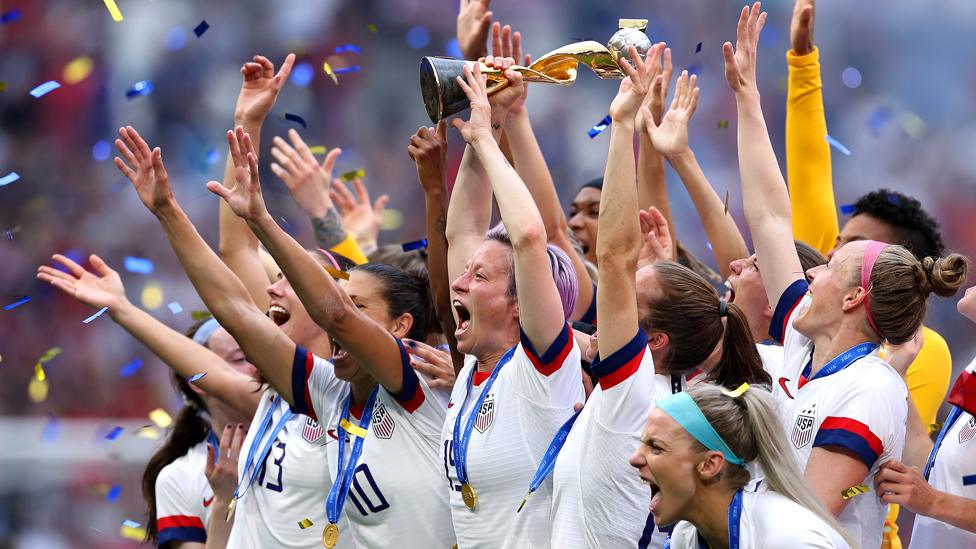
The USA won the Women's World Cup for the fourth time
According to Fifa, more than one billion people watched the competition around the world.
Those figures seem slightly far-fetched, but if you can't get your head around one in seven of every man, woman and child taking in this spectacle at some point, then you can believe that England v USA was the most watched programme of the year in the UK. Incredible numbers that nobody predicted.
It means that after years of pushing the women's game because it was the right thing to do socially and politically, Fifa now has a product that makes sense financially.
After casually mentioning the association's cash reserves stand at a staggering $2.74bn, president Gianni Infantino announced they would double investment in the women's game from $500,000 to $1bn over the next four years.
He bounced in his seat like an excited schoolboy as he threw in their plans to expand the tournament from 24 teams to 32 and create a club World Cup.
It's like Fifa has stumbled on a shiny new toy and can't quite believe its luck.
Taking the game seriously
Of course the game will benefit as everyone else hangs on for the ride, but it's not perfect just yet.
The officials have been criticised by fans, players and managers. The safety net of Video Assisted Refereeing (VAR) has failed to catch one or two clangers, but Fifa say they'll continue the development of female referees at speed.
Controversy has also come from the US in the form of allegations of sexism. Calls for parity with men when it comes to pay and facilities bubbled along for the duration of the tournament.
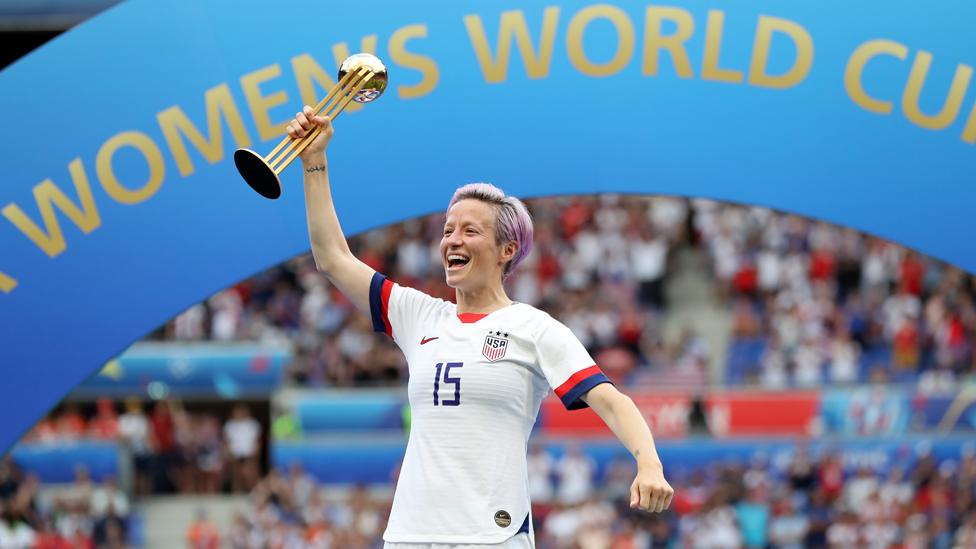
Megan Rapinoe has criticised Fifa for not taking the women's game seriously
Midfielder Megan Rapinoe bemoaned the gender pay gap in general and criticised Fifa for not taking the women's game seriously in terms of scheduling and facilities.
But it appears fans in general are taking the game seriously.
Its place in the market was always going to be determined by the product. The popularity suggests the product has vastly improved, even from four years ago.
Now it falls to the individual associations to determine how much they want to kick the game on further.
Fifa hope the lure of cash will turn enough heads and leave countries with no option but to invest further.
If they do, the game will be normalised and talk of growth, game changing and equal pay might well become a thing of the past.
- Attribution
- Published8 July 2019
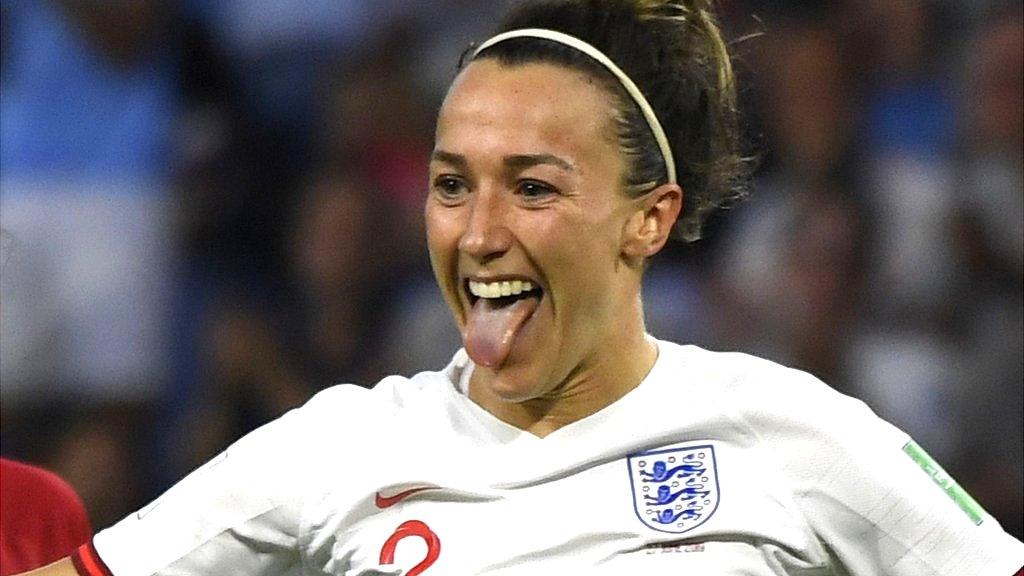
- Attribution
- Published8 July 2019
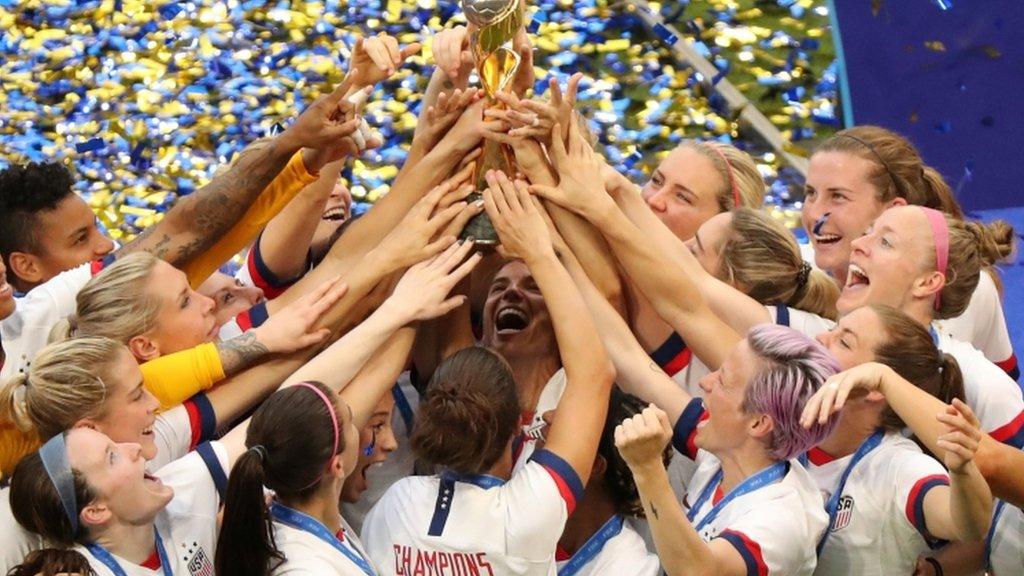
- Attribution
- Published7 July 2019
